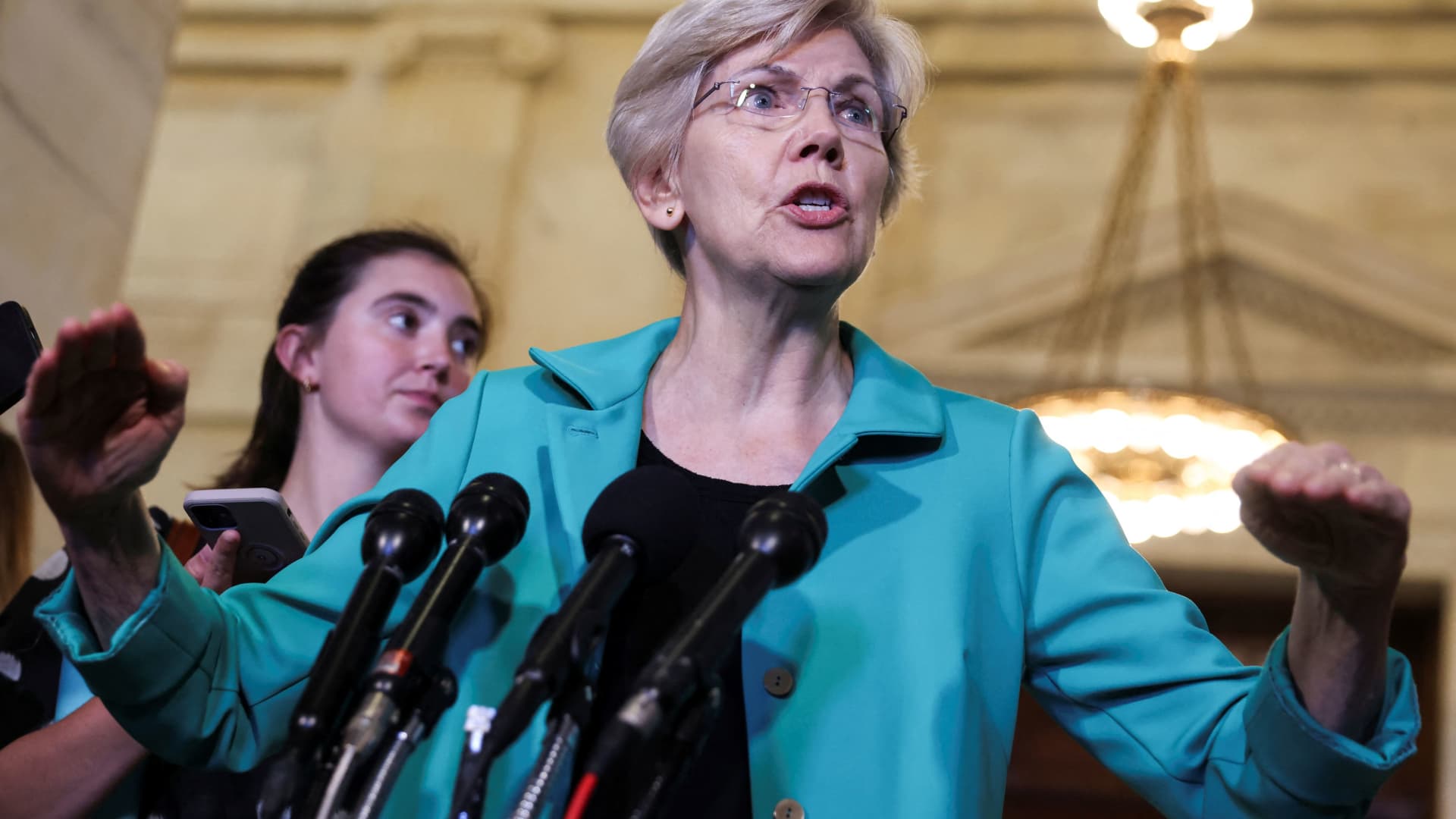Elizabeth Warren wants more student loan borrowers to know that it is now easier to part with their debt in bankruptcy court.
In a May letter reviewed by CNBC, the Democratic senator from Massachusetts, along with Sen. Sheldon Whitehouse, D-R.I., wrote to Tara Twomey, director of the U.S. Trustee Program at the Department of Justice, urging her “to continue to educate borrowers, attorneys, and courts” about the Biden administration’s updated approach for student loan holders.
Warren, a former Harvard Law School professor who taught courses on bankruptcy, is referring to guidance released by the U.S. Department of Education and Justice Department in the fall of 2022. That joint memo was intended to have federal student loans be treated more like other types of debts in bankruptcy, experts say.
More from Personal Finance:
Average consumer carries $6,218 in credit card debt
Here’s the inflation breakdown for April 2024 — in one chart
Some vacationers expect to carry summer travel debt
Over the years, policymakers added extra stipulations for the discharge of education loans, expressing concerns that young people would try to ditch their obligations after graduating. As a result, borrowers were often asked to prove a “certainty of hopelessness,” and government lawyers battled most requests. Between 2011 and 2019, more than 99.8% of borrowers who filed for bankruptcy did not get their student loans discharged, the senators wrote in the May 23 letter.
Discharging student debt in bankruptcy is now easier
The new guidance has already led to changes.
In the first 10 months of the Biden administration’s more lenient process, student borrowers filed more than 630 bankruptcy cases, a “significant increase” from recent years, it reported last year. The administration said that the majority of those borrowers received full or partial discharges of their education debt.
CNBC spoke to bankruptcy attorneys earlier this year who said they noticed the difference.
“While the government used to fight discharge aggressively in almost every case, there is now a policy to agree when the borrower can show financial need and a history of good faith efforts to pay the loans,” Latife Neu, a bankruptcy lawyer in Seattle, said in March.
“I’ve helped several people take advantage of the expanded ability,” Neu said at the time.
Many borrowers are ‘not aware’ of changes
Yet Warren says more work still needs to be done.
“More than 43 million borrowers in the United States carry a total of $1.6 trillion in student loan debt, and more than 2 million borrowers have been repaying those loans for at least 20 years,” Warren and Whitehouse wrote.
“DOJ and ED must work harder to encourage borrowers to seek relief — and deliver on that relief when requested,” they added.
The Department of Justice and Education Department did not immediately respond to a request for comment.
‘Do [it] now before November’
Malissa Giles, a consumer bankruptcy lawyer in Virginia, agreed that the government needed to better inform borrowers and lawyers about the new process.
“Most folks I see are not aware of the new bankruptcy discharge options,” Giles said. Several of her clients have benefitted from it.
Many law firms continue to refuse to take on these cases, she added, because of the low success rate of the past. She said one attorney told her that he did not want to spend the time updating his strategy for the new procedure before the election. (If former President Donald Trump wins the election, experts say, there’s no guarantee the more lenient approach wouldn’t come to an end.)
“But for me, that makes it even more important to take advantage of the litigation approach now, rather than waiting,” Giles said. “I tell current clients that if they want to pursue discharge and are eligible, they should do [it] now before November.”
